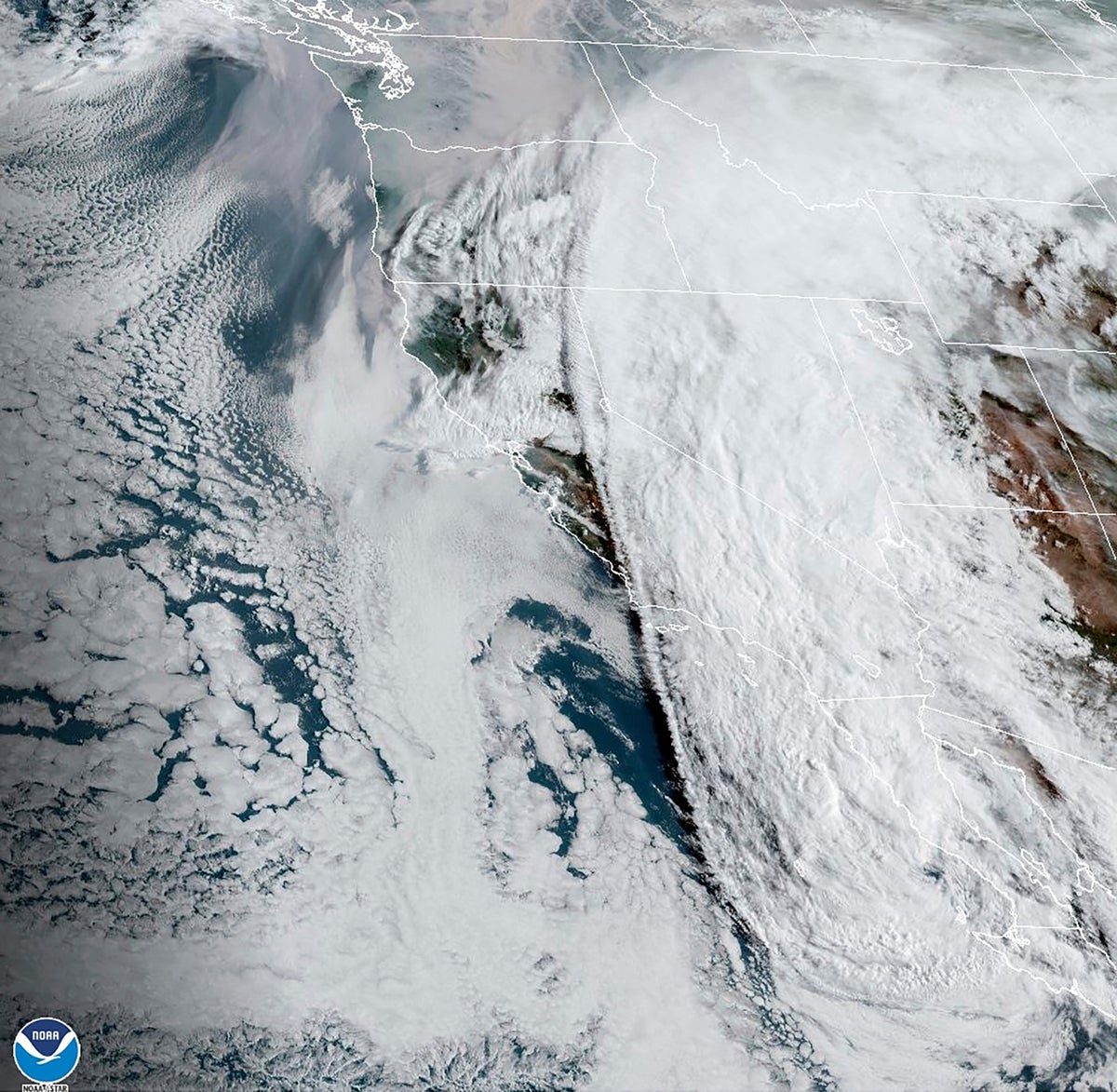
Tropical Storm Hilary was accelerating northward off Mexico's Baja coast on Sunday, no longer a hurricane but still packing what forecasters called “life-threatening” rain likely to unleash flooding across a broad region of the western U.S.
As of 8 a.m. Pacific time, Hilary was located about 220 miles (350 kilometers) south-southeast of San Diego, the National Hurricane Center reported. Hilary had maximum sustained winds of 70 mph (110 kph) and was moving northwest at 25 mph (41 kph), remaining just off the Pacific coast.
The Mexican cities of Ensenada and Tijuana, directly in the storm’s path, closed all beaches and opened a half-dozen shelters at sports complexes and government offices.
Hurricane Center Director Michael Brennan said that while Hilary had weakened from a Category 4 hurricane, it's the water, not the wind, that people should watch out for most.
“Rainfall flooding has been the biggest killer in tropical storms and hurricanes in the United States in the past 10 years and you don’t want to become a statistic,” Brennan said in an online briefing from Miami.
One person drowned Saturday in the Mexican town of Santa Rosalia when a vehicle was swept away in an overflowing stream. Rescue workers saved four other people, said Edith Aguilar Villavicencio, the mayor of Mulege township.
Forecasters expected Hilary to make history as the first tropical storm to hit Southern California in 84 years, bringing flash floods, mudslides, isolated tornadoes, high winds and power outages.
Tropical storm and potential flood warnings were posted for the entirety of Southern California, from the Pacific coast to interior mountains and deserts, and as far north as eastern Oregon and Idaho. Hilary was expected to remain a tropical storm into central Nevada early Monday before dissipating.
Brennan said rainfall could reach between 3 and 6 inches (7 centimeters and 15 centimeters) in many areas, with some higher amounts in isolated spots. Forecasters warned it could dump up to 10 inches (25 centimeters) — a year’s worth of rain for some areas.
California Gov. Gavin Newsom declared a state of emergency. The Federal Emergency Management Agency said it has officials inside California’s emergency preparedness office and teams on standby with food, water and other help.
Hilary is just the latest major climate disaster to wreak havoc across the U.S., Canada and Mexico. Hawaii’s island of Maui is still reeling from last week’s blaze that killed over 100 people and ravaged the historic town of Lahaina, making it the deadliest U.S. wildfire in more than a century. Firefighters in Canada are battling blazes during the nation’s worst fire season on record.
Hilary left a long string of washed-out highways and roads up and down the Baja peninsula in its wake Sunday. Some of the worst damage occurred in the coastal towns of Mulege and Santa Rosalia, on the east side of the peninsula, where a man died Saturday after his family’s vehicle was swept away by a swollen stream. Four other occupants of the vehicle were rescued. Power lines were toppled in many places, and emergency personnel were working to restore power and reach those cut off by the storm.
In California, evacuation warnings were issued for Santa Catalina Island, urging residents and beachgoers to leave the tourist destination for the mainland, and for several mountain and foothill communities in San Bernardino County. Orange County sent an alert for anyone living in a wildfire burn scar in the Santa Ana Mountains’ Silverado and Williams canyons.
Los Angeles authorities scrambled to get the homeless off the streets and into shelters, and officials ordered all state beaches in San Diego and Orange counties closed.
Across the region, municipalities ran out of free sandbags and grocery shelves emptied out as residents stockpiled supplies. California’s Joshua Tree National Park and Mojave National Preserve were closed to keep visitors from becoming stranded amid flooding.
“I urge everyone, everyone in the path of this storm, to take precautions and listen to the guidance of state and local officials,” President Joe Biden said.
Meanwhile, one of several budding storm systems in the Atlantic Ocean became Tropical Storm Emily on Sunday, according to the National Hurricane Center. It was located far from land, moving west in the open ocean.







